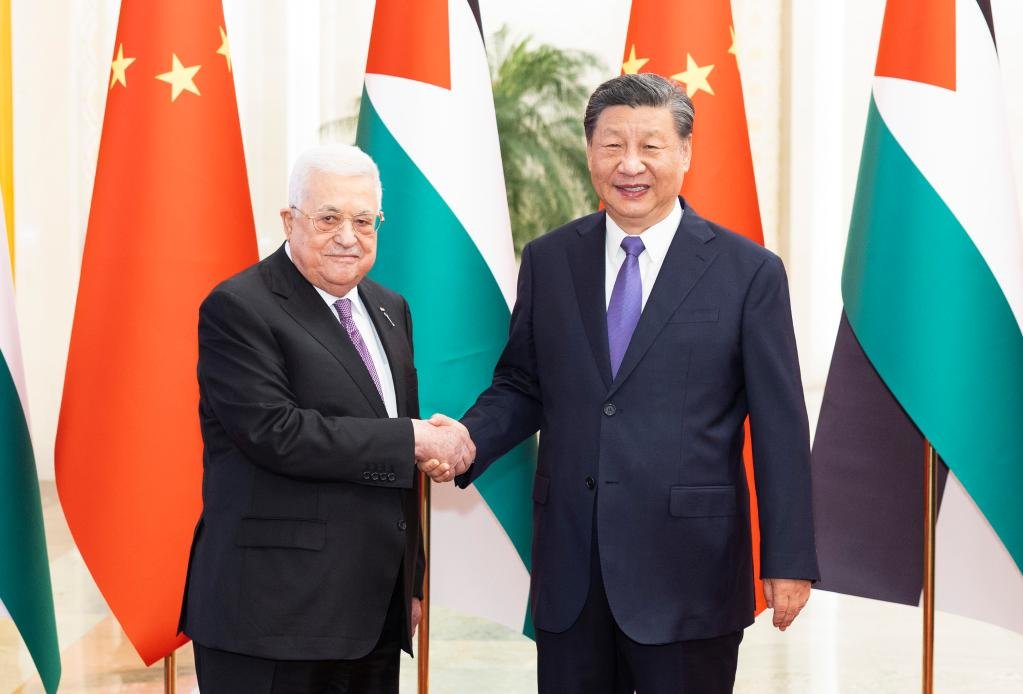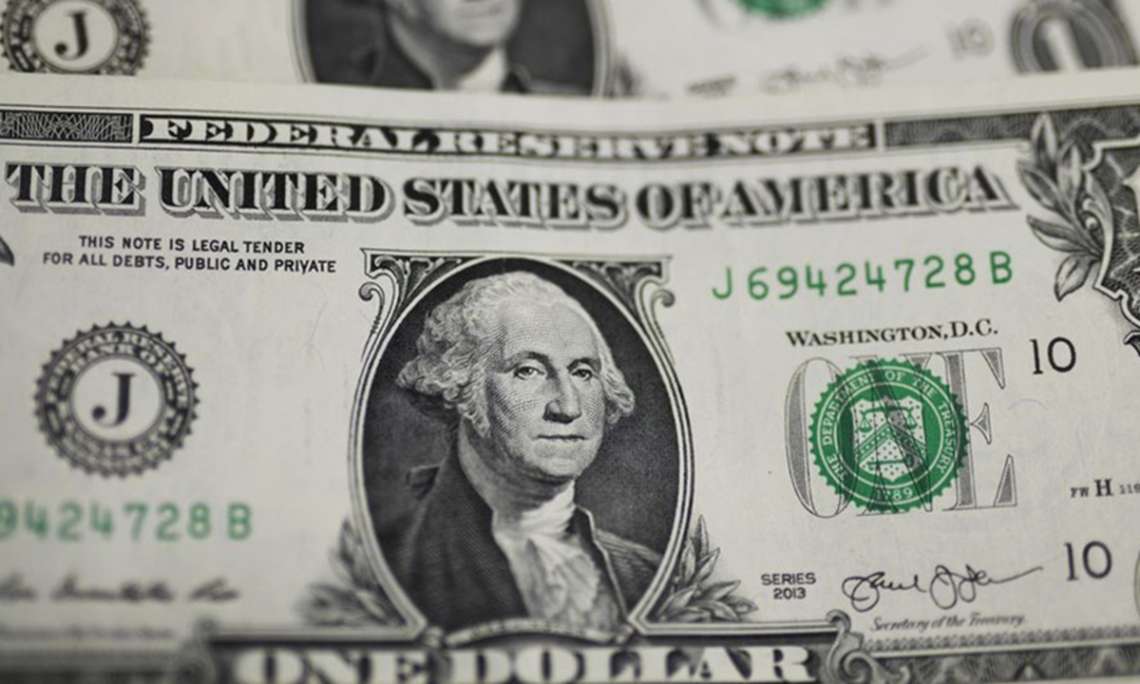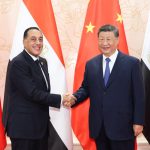Hopes of future Chinese influence in the Middle East are being dashed by the conflict between Israel and Hamas….reports Asian Lite News
China proclaims itself to be a responsible global player. The truth is, despite insistent proclamations of neutrality, it is biased in the way it relates to international crises such as the current Israel-Hamas conflict. Furthermore, this war is exposing the self- interested, mercantile qualities that China brings to all its foreign relations.
China is charting a careful path, simultaneously seeking to undermine the USA and curry favour with Arab states. Its risk-avoidance strategy can perhaps best be described as anti-Western neutrality. Approximately one million Chinese work in the Middle East, while the majority of China’s oil imports originate from the Middle East – 87.5 million tonnes in 2022, with Saudi Arabia being the largest supplier of crude.
On January, 26-27, Foreign Minister Wang Yi met US National Security Advisor Jake Sullivan in Bangkok. China’s readout briefly stated that regional issues like the Middle East were “discussed”. That was the limit of it. No mention of the Red Sea or Gaza.
In contrast, the USA said it attempted to persuade Beijing to pressure Iran to stop Houthi attacks on Red Sea shipping. According to a White House official, China agreed to “raise this with the Iranians.” Nonetheless, an American official pondered, whether China “chooses to use that leverage in that way, I think that remains to be seen”.
China has done nothing to curb North Korea’s nuclear aspirations, plus it has offered tacit support for Russia’s invasion of Ukraine. Relying on China for anything substantive is a vain hope. China mediated a diplomatic deal between Saudi Arabia and Iran in March 2023, but Beijing has no real leverage over Teheran and certainly it cannot get it to reign in Hamas.
Interestingly, showing which side China really is on, the Houthis said Russian and Chinese ships will not be targeted in the Red Sea. The People’s Liberation Army Navy has had anti-piracy task forces in the Gulf of Aden since 2008. However, reports suggest that three Chinese warships, sailing near a merchant ship under attack from Somali pirates and Houthi missiles in late November 2023, refused to respond to its distress calls.
On October 15, 2023, Chinese Foreign Minister Wang Yi criticized Israel’s killing of civilians. He said Israeli actions had “gone beyond self-defense,” describing Israel’s campaign as “collective punishment”. This slap in the face showed Israel that any previous friendship was simply one of convenience; Beijing has no real affinity with Israel and it sits low among its strategic priorities. Israel said it was “deeply disappointed” by Beijing’s response.
On the other hand, Wang said on November 20, at the Arab and Islamic ministerial committee on the war in Gaza held in Beijing, that “China is a good friend and brother of Arab and Islamic countries … We have always firmly safeguarded the legitimate rights and interests of Arab Islamic countries and have always firmly supported the just cause of the Palestinian people”.
Indeed. Historically, China has always sympathized with Palestine and, from early on, Mao Zedong sent Palestine weapons for use in its struggle against Israel. China is obviously positioning itself on the side of Arab and Muslim countries. But this is quid pro quo, for Beijing will expect their support in international organizations on issues like Taiwan and Chinese global governance.
However, Ahmed Aboudouh, a nonresident fellow with the Atlantic Council, an American think-tank, assessed: “Beijing’s policy will most likely backfire. China neither has the trust of Israel nor the Palestinians. China’s position is at odds with the influential Arab states and lacks credibility and leverage to rein in Iran and its proxies in the region. Israel, the more powerful party to the conflict, no longer sees China as a credible mediator.”
Palestinian President Mahmoud Abbas visited Beijing in June 2023, where the relationship was elevated to a “strategic partnership,” the second-highest level. Yet Beijing has offered a miserly USD4 million in humanitarian assistance to Palestine since the conflict erupted, which shows just how strategic Palestine really is to China.
Palestine will not be fooled by Chinese verbosity any more than Israel is. Even Israel’s Arab neighbours have done more than China in criticizing the Hamas attack. Beijing refuses to blame Hamas or even mention the name of the organization (which is an acronym for Islamic Resistance Movement). In essence, Beijing has lifted Hamas to the same level as the Palestinian Authority, and by equating Hamas and the Palestinian cause, China reveals its lack of understanding of the complicated dynamics. Furthermore, it incorrectly calls it a “Palestine-Israel conflict” rather than a “Hamas-Israel” one.

Aboudouh concluded, “The culmination of all the challenges above creates an unmitigated dilemma for Beijing. On the one hand, if China chooses to change its future policies and play a central role in the conflict, there is no evidence it will be willing to spend much political capital on presenting alternative solutions to the US view of the two-state solution or the Arab Peace Initiative. China doesn’t have a vision for a political settlement and is unlikely to offer one soon. This intensifies the credibility deficit that has dominated China’s position since the conflict began, which is expected to increase as long as no one in Israel and the Gaza Strip, the West Bank or the wider region takes China’s proposals seriously. Although China is interested in exerting pressure on the USA’s stance, it has no desire to directly challenge its historical role as the sole interlocutor in the conflict.”
China issued a position paper on the Palestinian-Israeli conflict on November 30, 2023. It stressed the “need for an immediate ceasefire and ending the fighting, ensuring that the humanitarian corridors are safe and unimpeded, and preventing the expansion of the conflict”. Beijing’s solutions are as follows: implementing a comprehensive ceasefire and ending the fighting; protecting civilians effectively; ensuring humanitarian assistance; enhancing diplomatic mediation; and seeking a political settlement.
Undoubtedly, this will be as useful as China’s twelve-point position paper on the Russia-Ukraine war, which was promptly forgotten by everyone. China has promulgated a two-state solution since the beginning, although Hamas categorically rejects anything less than the destruction of Israel. A public opinion poll conducted by Tsinghua University in November 2022 showed that only 3.3 per cent of Chinese respondents believed peace in the Middle East should be China’s top international priority. In fact, it was the lowest-ranked issue after items such as US- China relations, pandemics and territorial disputes.
There is an obvious lack of sympathy for Israel’s plight and its legitimate security concerns on China’s part. Four Chinese nationals have been killed, six injured and two remain missing since the Gaza conflict broke out on October 7, 2023. Surprisingly, however, this is not widely reported on Chinese social media and correspondingly there is no strong push by the public for the government to take action. Indeed, the conflict is a topic remote from the lives of most Chinese.
Noa Argamani, an Israeli woman of Chinese descent, was kidnapped by Hamas and remains a hostage. Her mother pleaded for the Chinese government to intercede in a post that had gathered 260 million views on Sina Weibo by late October, but Chinese officials and state media remain mute. Instead, many hardhearted netizens criticized the mother for being “presumptuous” in asking for Beijing’s help.
As one op-ed on Baidu, China’s equivalent of Google, stated: “After all, like the Israelites, they took a book of scripture and claimed that God asked them to reestablish their country here and to use force to drive away the millions of people who had lived in this land for thousands of years. This kind of folk custom of doves occupying magpie’s nests is simply unacceptable to us Chinese people.” Of course, one might lay the same charge that this is exactly what China did with territories like Tibet and Xinjiang.
Beijing’s official stance is that there should be a ceasefire and ultimately a two-state solution. This is reflected in this kind of social media post: “The death of Chinese is unforgivable. Hamas really should not lead Palestine, but Palestine really has no other choice. But that doesn’t mean we should go to one-sided support for Israel. We should look at the view of the Ministry of Foreign Affairs: armistice negotiations, the implementation of the two-state solution. Let groups like Hamas lose their ground for survival. It is irresponsible that Israel is doing the opposite. Finally, this war in the Middle East will not end in a short period of time. Let’s hurry up and evacuate the Chinese.”
Another common sentiment is that the USA is the instigator and perpetuator of the conflict between Israel and its neighbors. This is a narrative pushed by Chinese state- backed media, and online posts that refer to Palestinian casualties and that support Beijing’s official position go uncensored.
Chinese social media platforms are rife with anti-Semitism too, despite Chinese law forbidding people from using the internet to promote extremism, ethnic hatred or discriminatory information. Chinese media has not adequately covered Hamas’ attack, and instead it only fixates on Israel’s retaliatory campaign. Conspiracy theories abound too.
One writer on Baidu urged, “We Chinese do not owe the Jews anything at all, but now Israel is desperately blaming China. This is a typical case of repaying kindness with enmity. If Israel is unwilling to give us basic respect, then it does not deserve any respect from us.”
Authors Patricia M. Kim, Kevin Dong and Mallie Prytherch of the Center for East Asia Policy Studies wrote for the Brookings Institute: “…Neither Chinese leaders nor the Chinese public envision a major role for their government in the ongoing crisis.”
They further suggested, “Beijing will not pass up the opportunity to use the current and future crises to discredit the United States while amplifying its alignment with its non-Western friends. It is likely to remain a nominal power broker in the Middle East by choice for the foreseeable future.”
Xi has initiated the China-Arab States Summit and the China-Gulf Cooperation Council Summit to foster engagement. As more Arab countries doubt US commitment to Middle East security, more are open to approaches from players such as China.
Sine Ozkarasahin, an analyst at the defense research program of EDAM – the Centre for Economics and Foreign Policy Studies in Turkey – gives more credit to Chinese influence in the Middle East. She wrote for The Jamestown Foundation: “With a well- planned strategy and a careful exploitation of the gaps opened by US foreign policy shifts, China has successfully increased its role as a strategic actor in the Middle East, including by gaining a foothold in the regional arms market.”
Ozkarasahin commented, “Although Beijing is known for using infrastructure investment and economic leverage to increase its overseas influence, Sino-Arab relations are not as purely transactional as some argue. On the contrary, they carry the utmost strategic value. With important partnerships in the fields of technology and arms transfers, Chinese influence in the region is already more extensive than many realize. As China improves its relations with once-close US allies, Washington faces two imminent risks. The first risk is economic, whereas the second danger is strategic.”
“The economic risk is that Washington is already losing its most lucrative arms market to its biggest rival,” Ozkarasahin noted. “The second risk relates to geopolitics and has strategic implications. While filling the burgeoning arms market with alternatives to Western suppliers, China is also expanding strategic ties with the leading Arab states, which could reset the balance of power across the region.”
Sino-Saudi diplomatic relations were established in 1990, but three years before that China supplied the kingdom with DF-3 medium-range ballistic missiles. It appears that China is supporting Saudi Arabia with current ballistic missile programs too. Satellite imagery dating from October 2021 showed that the kingdom had begun manufacturing its own missiles in the town of Dawadmi.
Saudi Arabia is China’s largest trading partner in the Middle East, plus it participates in the Belt and Road Initiative. But even as ties with Saudi Arabia deepen, this puts China in something of a bind, because Beijing has traditionally been a friend of Iran too. If Riyadh is developing ballistic missiles, that will affect the balance of power with nemesis Iran.
China will sit on the sidelines and blame others, instead of positively contributing to a solution. Of course, if the USA is taking the blame, that is sufficient reason not to get involved.
Nonetheless, hopes of future Chinese influence in the Middle East are being dashed by this conflict. China’s words, without any backup actions, reveal it is in a position of weakness. Self-interest is the bottom line, and China will likely remain risk-averse in the region. (ANI)
ALSO READ: Taiwan to invest in AI tool to fight China threat













